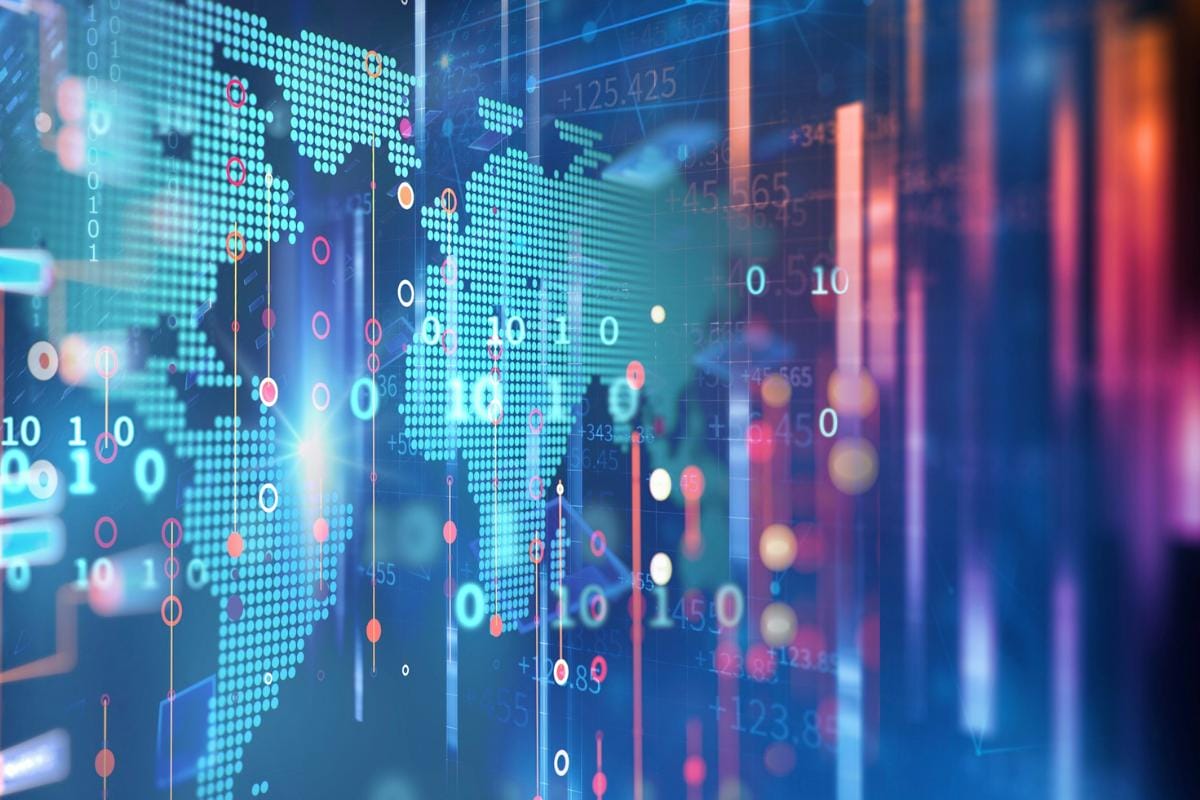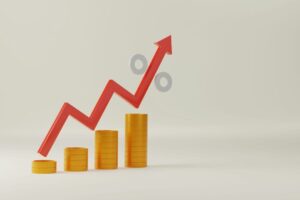Aberdeen Investments has outlined three themes driving profound changes in the global economy, following a ring the bell ceremony at the London Stock Exchange to mark the listing of two active ETFs designed to benefit from these trends.
Trade tensions, intensifying ‘tech wars’, and demand for new materials are reshaping where goods and services are produced across the globe.
They are also increasing demand for those raw materials needed to build a greener, smarter world. Aberdeen sees exciting opportunities for investors to back those companies benefitting most from this global evolution.
The abrdn Future Supply Chains UCITS ETF and abrdn Future Raw Materials UCITS ETF have listed on the London Stock Exchange in July. They are designed to give investors access to Aberdeen’s highest conviction ideas in the two themes in a low-cost, liquid wrapper.
Reshoring driving major transformation in global supply chains
Global supply chains are undergoing significant transformation, driven by more insular government policy and heightened domestic investment, with policies and incentives designed to encourage more domestic manufacturing.
In addition, the growing trend towards reshoring and nearshoring, with companies seeking to reduce dependency on foreign suppliers as tariffs and fiscal policy shifts take effect, are also causing structural shifts in worldwide supply chains.
Lizzy Galbraith, Senior Political Economist at Aberdeen Investments, said:
“Global supply chains are becoming more complex. With national security and trade becoming more closely aligned, geopolitics is changing the nature of trade flows.
“Modern industrial policy is becoming tilted towards strategically important sectors, like critical minerals, semiconductors and advanced technology products. US policy in particular is accelerating this trend, with tariffs altering trade flows and encouraging reshoring to areas with fewer trade barriers.
“Some of the countries most exposed to tariffs will have the most to gain from reshoring – we believe that many of the economies at greatest risk of trade-related uncertainty are likely to be the long-run winners. Countries like Vietnam and Mexico for example have the greatest exposure to punitive action from Washington, and yet, Mexico’s integration with US supply chains and a strong manufacturing base in APAC countries including Vietnam make them likely winners of reshoring, given the ongoing structural geopolitical tensions with China.”
Winners and losers amid changing supply chains
Broad changes in supply chains constitute profound shifts which are already starting to impact large swathes of the global economy. As with all major economic shifts, there will be winners and losers.
Aberdeen believes this is a theme with genuine duration and one that is likely to materially impact global equity markets over the long-term.
Blair Couper, co-manager of the abrdn Future Supply Chains UCITS ETF, said:
“Supply chains are no longer just about efficiency – they’re about resilience, sovereignty and strategic control. The US is reshoring critical industries, Europe is investing in energy independence and Asia is building regional manufacturing hubs.
“The confluence of rising geopolitical tensions, trade fragmentation and green investment is creating a new set of winners and losers. The terms ‘nearshoring’ and ‘reshoring’ aren’t just buzzwords; they’re boardroom priorities now. And so we see opportunity across three key pillars – technology independence, resilient supply chains, and decarbonisation and energy security.
“A great example of a company that we believe is well-positioned to benefit from this is Advantest, a Japanese company which makes equipment to test the fidelity of the leading-edge semiconductor chips. As we start to see more semiconductor fabrication plants being built in the US, because of the strategic imperative to re-home that manufacturing, Advantest may be a beneficiary of that capital spending as these facilities are fitted with their testing equipment.
“Another example is WiseTech Global, an Australian software business which is the backbone of the global freight industry. They help automate tasks such as customs processes that have become ever more complex as a result of changing tariffs and increased trade frictions, making them well-positioned to capitalise on more complex supply chains.”
Tech and energy revolution driving raw materials supercycle
Technological advancements and the increasing drive towards decarbonisation are also boosting demand for the raw materials fuelling the world’s ongoing tech and energy revolution.
Minerals are key components of a wide range of green technologies, with powerful structural trends including global policy support, increasing grid demand and rising renewable energy usage, underpinning these technological advancements and driving the shift from a fossil fuel intensive global economy to a mineral intensive one.
David Clancy, Research Director for Quantitative Index Solutions at Aberdeen, said:
“The fundamentals are pointing towards the start of a new supercycle in raw materials. Technological advancements in batteries, EVs and semiconductors, combined with global policy support, increasing grid demand and rising renewable energy usage, are strong tailwinds underpinning long-term structural demand for certain raw materials.
“We see five strategic minerals in particular as key to supporting the green transition and technology revolution – copper, lithium, nickel, aluminium and rare earth elements. Demand for these materials looks set to increase significantly over the coming decades.”















